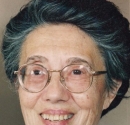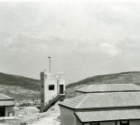
Illustration by Denis Shifrin
One Thursday afternoon in Tel Aviv two old friends, Shlomi and Yair, took a table in their regular place, a café on the corner of Dizengoff and King George streets. Soon they began to argue, their words rising above the din and then melting back into the concert of voices that filled the little coffee house.
"You're so damn naive!" shouted Shlomi, the larger of the two. He was in his late thirties. His face was round and his stomach even more so. He wore a wrinkled suit, and the knot of his tie was loose. One shirt flap hung out over his belt.
Yair, in contrast was of slight build. His dress was sporty - a yellow T-shirt, jeans and sandals - and, while casual, conveyed a certain carefulness. He was bald in front and his remaining hair was tied in a pony tail. Hands clasped behind his head, he was leaning backwards, distancing himself from his companion's tirade.
"When are you going to grow up?" Shlomi went on. "Life is tough, mean and nasty. A constant fight. Survival of the fittest." He pressed out his half-smoked cigarette with such force that the ash tray fell on the floor with a crash. Conversation around them stopped and heads turned in their direction.
In the silence Yair sat forward and said softly but firmly, "You're wrong, my friend. Life is more than making money. There's beauty and friendship, poetry and romance. You miss all that."
Shlomi waved his hand dismissively. "Who's got time to think about that stuff. I gotta keep bread on the table."
Overhead two military helicopters – great black hornets – flew north to Lebanon, perhaps to battle. The drone of their rotary blades sliced through the café sounds. Shlomi pointed out the window and pontificated. "That's what life's about. Can't you get it into your head?"
In one corner of the room was a bar. On its marble counter sat an Italian coffee machine and next to it the usual assortment of cakes, pies and muffins found in stylish Tel Aviv eateries these days. Behind the bar stood the owner, a short, stout man with combed-back hair, wearing an apron. He watched the two men. An odd couple, he thought. Always arguing. But they keep coming back, every Thursday. And so he passed no judgment.
He switched on a radio talk show. The host was interviewing a local businessman who, with a group of old friends, had purchased a Tel Aviv soccer team. Their radio patter could be heard throughout the room.
"Listen to that!" Shlomi insisted, the upper part of his body leaning in one gross movement towards the radio. "You think he cares about the game. He's in it for money!"
But, as though he had heard Shlomi's remarks and taken offence, the club's owner explained it had been passion that led to the purchase. Since childhood, he and his friends had been supporters of the Tel Aviv team. They'd go to Bloomfield stadium every week, rain or shine. Now grown-ups and successful businessmen, they had decided to buy the team. They never miss a game, always sitting together in the best seats.
Now it was Yair's turn to be dismissive. "You see there's heart there. But, you don't see it, Shlomi. I feel sorry for you." For once Shlomi remained quiet.
The café owner was still watching the men. They were sitting back in their chairs scowling and not looking at each other. The smaller one signaled for the waiter, a dark-skinned young man who smiled a lot and whose presence seemed to make his customers happy. While he paid, the fat one walked out in a huff. The owner chuckled to himself, thinking not for the first time that his place was more theater than café.
Outside, the friends said goodbye. Yair began walking down King George Street, away from the shopping mall across the street, which just a few months before had been smashed apart by a terrorist bomb. Many people had been killed and wounded. It had been quickly renovated; and now, except for a small memorial plaque and burning candle in a glass-encased iron box, there was no sign of disaster. Nonetheless, Yair looked away. Shlomi had been right. He didn't like seeing the dark side of things.
He had chores to do on Allenby Street, and he walked amongst the early evening pedestrians in that direction. Night was spreading over them all like a gently falling blanket, drawing them together in kinship. Waiting at a traffic light he noticed the woman next to him. She wore a short red skirt, boots and a jeans jacket. Her hair was brown and she was carrying a bouquet of yellow flowers, each with a dark button at its center. Her expression appeared dreamy, as though she were seeing things other people didn't.
The light changed, and they all started walking. Without thinking, he began to follow her and soon noticed that every few steps she would pick off a flower and toss it on the sidewalk. On every block lay a silent yellow eye, beckoning him onward.
He was vaguely aware they were walking towards the ocean front, and he imagined her a siren swimming through a dark sea of people. Occasionally she would stop and turn her head this way and that as though sniffing a sea breeze.
He hardly noticed they'd entered the seedy part of Allenby Street. Some store fronts were boarded up and garbage lay at the corners of empty buildings. Foreign workers sat guzzling beer and watching football on improvised, outdoor televisions. Prostitutes mingled in small groups, chatting and waiting.
As Yair was crossing an intersection, a car nearly rammed into him. There was a sound of brakes. With a start, he looked around and saw the woman was now standing with her hands on her hips shouting at a man with a gold necklace, greased-back hair and white shoes. Suddenly the man took her wrists and shoved her down on a bench next to two prostitutes, one a fat hag with smeared red lips and painted eyebrows, the other so thin she could have been a drug addict or anorexic. Trying to maintain her self-respect, the woman stuck out her middle finger. The man merely laughed. Then she too began laughing and the two others joined in, a familiar family scenario.
One of the whores spied Yair. She said something to her sisters and pointed in his direction. Now they were all laughing at him. The fat one slid out her tongue in lewd invitation.
Yair stood frozen for some moments. Then he threw down her flowers which he had picked up from the street as she threw them from her bunch, turned and walked quickly away.
After saying goodbye to his friend, Shlomi crossed the busy intersection of Dizengoff and King George, not appearing to care that the designated crosswalk was still half a block away. Drivers slowed for him, honking and shouting. There was a minor traffic jam, but Shlomi was oblivious.
He wandered down Dizengoff St., where it cut through the two sides of the now-restored shopping center, thinking of a new model cellular phone he wanted to buy. He'd read about a sale in a popular appliance store just a few shops down. Most of the center's merchants had lowered prices to woo back frightened shoppers. Money makes the world go round, he thought, as he'd tried so unsuccessfully to show Yair just a few minutes before.
Distracted, he bumped into two teenagers with rings in their eyebrows. One of them was drinking something from a large paper cup which went flying to the sidewalk splattering passersby who shouted at them. Shlomi didn't notice the consternation he'd caused. Soon he reached the store and, sure enough, the sleek-looking phone was displayed in the window. He smiled with anticipation.
Suddenly, he heard someone say "Shalom". He turned and saw a man who looked like a new immigrant standing at the entrance. The man was old and dressed in worn clothes - a yellow and brown checkered sports jacket, red tie, fedora hat - that may have been fashionable in Eastern Europe or Russia years before but certainly not in today's Tel Aviv. He smelled of cheap perfume and was holding a violin. Next to him on the sidewalk was an open case with several coins resting on the velvet interior.
The man lifted his hat in dapper greeting, said something in a language Shlomi couldn't understand and began playing. He recognized the tune, a Russian melody that had been popular when he was a boy.
He started to go into the store, and the music quickened, matching the pace of his walk. He slowed down and so did the tune. Mesmerized, Shlomi turned and saw laughter lines around the man's eyes. He realized he'd been cleverly caught in a musical spider web and, despite himself, was charmed. The music carried him back to a warm summer day on the Tel Aviv beach long ago. He could feel the warmth on his skin and hear the soft lapping of waves. There had been a girl, a quick kiss and a promise of more . . .
A sharp noise drew him from his reverie. People had gathered round and were clapping applause. The old violinist was taking bows, and they were throwing coins into his case. Shlomi took out a large bill and added it to the pile. The old man tipped his hat and smiled a "thank you".
Shlomi started to move out of the circle but stopped when he heard the old man playing another tune. New people had stopped to listen. Shlomi paused a while and then walked off into the night, forgetting all about the cellular phone.
The café owner saw his two customers take their regular table. It was Thursday; a whole week had passed. When he looked a few minutes later they had their coffee and were, as usual, arguing. This time it was politics. Their voices rose above the coffee house cacophony.
Suddenly the fat one slapped his hand on the table and shouted, "You could walk through dirt and just smell roses!" The thin one was cringing. Somewhere in the café, a cellular phone began ringing.
The owner couldn't have known that at the mention of roses the thin man had begun thinking of the whore with the yellow flowers. Nor that when the cellular phone rang the fat one entered a dreamscape in which he and a young girl were dancing through the air to the music of a fiddler on a roof. All he saw was that for a brief moment his two regulars were not arguing.
 MEMBERSHOP PERKS-An ESRA Modiin Initiative
MEMBERSHOP PERKS-An ESRA Modiin Initiative KINDERTRANSPORT JUNE 5-6 1939
KINDERTRANSPORT JUNE 5-6 1939 HOW TO CARE FOR YOUR CHILD'S TEETH
HOW TO CARE FOR YOUR CHILD'S TEETH-1450935317.jpg) Spending a Week in Tel Aviv
Spending a Week in Tel Aviv  Ma'ale Hachamisha
Ma'ale Hachamisha-1450857993.jpg) Jazz in a Pearl Garden
Jazz in a Pearl Garden  Eric Moss
Eric Moss